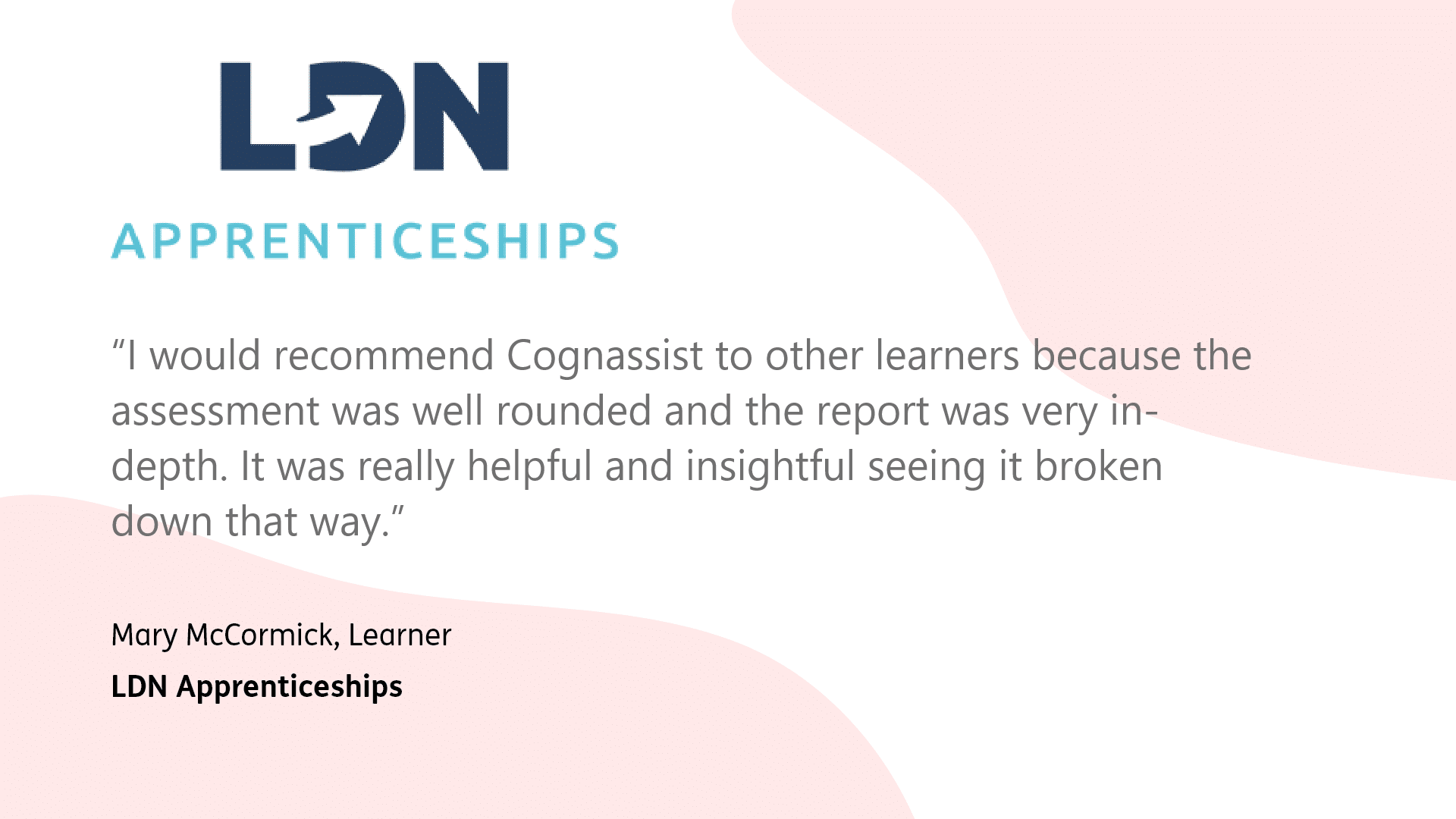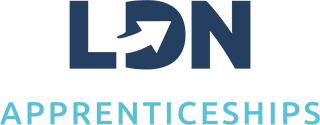
LDN Apprenticeships Learner, Mary McCormick
Mary spoke with Cognassist to share the impact the modules had on her course and how they helped her successfully complete her apprenticeship.
Background
Mary understood that she was different early on. So, it wasn’t a shock when she was diagnosed with dyslexia and dyspraxia in sixth form. Previously, her sister had also been diagnosed with dyslexia, which meant she was familiar with the term. It did, however, provide relief to have a name for the difficulties she experienced when reading aloud.
Yet, getting her diagnosis provided only a mild understanding of how it impacted her learning and day-to-day activities. Unfortunately, she was not given the tools to better understand her learning difficulties and was left to discover strategies on her own.
Mary meets Cognassist
Despite not being provided with tools to assist her diagnosis, Mary graduated from the University of York with a degree in English Language and Linguistics. With an interest in publishing, she decided during her final year to go into a publishing job after she graduated, which led to her embarking on an apprenticeship.
In 2020, as part of her Level 3 publishing apprenticeship with LDN Apprenticeships, she was given the Cognassist cognitive assessment. This assessment provided her with a detailed report of her cognitive profile. She said she remembers being surprised by her verbal memory being so low. She knew her verbal memory was not great. For instance, she would often struggle to recall a question just after it had been asked – she didn’t realise this was not the case for everyone. Mary realised then that while it had seemed normal for her, this was actually a specific way her brain worked.
Mary also enjoyed the assessment and how the explanations in the reports further explained what cognitive domain each task was targeted at assessing. This helped her understand the importance of the assessment and how it worked.
How Cognassist helped her
As an undergraduate student, Mary really enjoyed studying. She learned how to develop coping mechanisms for herself to get the most out of her course. One of the studying processes she developed while in university was condensing her notes and writing them in her own words. Mary would record herself dictating her notes to play them back to listen to it.
The difference between her diagnosis in sixth form and during her apprenticeship was the depth of information about how she thinks and learns, as well as how to adapt to her own cognitive profile. Through Cognassist, Mary was able to get a detailed report, which clearly shared her cognitive profile with areas where she needed support and reasonable adjustments. It was the first time she had been able to understand her brain in detail. Suddenly, things began to click in place: this was why she struggled with certain things like remembering questions minutes after they had been asked.
Her recommendation
Mary recommends that other learners also take the Cognassist assessment seriously in order to further understand their brain and how it works. She also very much enjoyed the modules and hopes that other learners will find them as helpful as she found them in equipping her for work and her day-to-day tasks.
The impact
Cognassist modules provided her with tools and techniques to cope with her learning difficulties and be productive in a way that works for her. Many of the things she learned from the modules are still integrated into her current work and life processes even after the completion of her apprenticeship.
With Cognassist, her supervisors were able to apply reasonable adjustments to help her perform at her best. This support was especially useful for the final project of her apprenticeship. The questions that would be asked during the assessment were all sent in advance of the presentation, which helped Mary prepare for them. This adjustment reduced the impact of her verbal memory on her overall performance during the assessment.
Cognassist gave her an awareness of what she needed to request from her supervisors and helped create an end-point assessment experience that was fair, devoid of excess stress and ultimately reflected her true capabilities. This is a perfect example of reasonable adjustments being properly implemented to remove barriers to success.
“I would recommend Cognassist to other learners because the assessment was well rounded and the report was very in-depth. It was really helpful and insightful seeing it broken down that way.”

Mary McCormick
Learner, LDN Apprenticeships
Book a demo now
Help every one of your learners reach their full potential